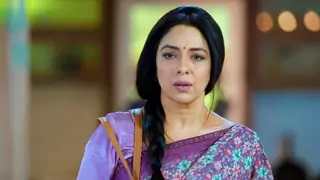Mahbub Husain Khan I began my last week's column thus: "August is the 'cruellest month' for us as a nation." When I wrote this line our legendary poet, Shamsur Rahman was hovering between life and death. Within hours after I handed in my column at the Holiday office, he had joined the ranks of the immortals after death. Since then, another legend of the Indian subcontinent, Ustad Bismillah Khan died - he who played his Shehnai on the occasion of the first Independence day of the Indian subcontinent. And as of now, our National Professor Dr Nurul Islam is still in a critical condition at CMH.
While there have been no fireworks in the political arena of the metropolis this week, being mostly a week of mourning, the possibility of an one-on-one dialogue between Jalil and Mannan Bhuyia seems brighter. At the same time the younger leaders of the BNP are proposing amendment to the Constitution, before 27th October - when the ruling party is to hand over power to the non-party caretaker government. The amendment proposed by some young stalwarts of BNP - is Tareque Rahman amongst them? - is supposedly for an institutional mechanism for any void in constitutional continuity in the event of a political impasse if the Awami League and the 14-party combine may not take part in the elections.
Meanwhile, as I write this column, Ershad has made the announcement that he would field candidates for 300 seats at the elections, if Awami League does not contest the elections. What does this mean? Will Jatiya Party contest in coalition with BNP if Awami League and 14-party contest in the elections, and will it be in opposition to BNP if Awami League does not contest, or is this part of the bargaining strategy of Ershad? Only the next weeks will reveal Ershad's ultimate strategy.
An important conference of the Health Ministers of South East Asian Region (SEAR) was held this week, organised by WHO, at a local hotel in the city, on healthcare for all in South and South East Asia. Our Prime Minister inaugurated the meeting, stressing the need for removing healthcare inequities in the region, and called for the development of new health and medicine technologies, manufacture of drugs at affordable prices and the necessity for a well-trained and socially dedicated public-health workforce.
The countries in the region must innovate financing methods to make healthcare affordable to all households. There should be greater cooperation among the countries in the region for resolution of the problems and obstacles to affordable healthcare and sharing of knowledge and experience acquired by development partners and affluent nations. This is a very critical juncture of the healthcare scenario in the region. While the rich in South East Asia can pay for the best of the healthcare facilities in the region as well as in the advanced countries, the poor are always neglected. Poverty causes neglect of healthcare, and neglect of healthcare increases poverty as the chronically sick or those afflicted by dread diseases, among the poor, cannot work actively for a decent living. This is a vicious cycle and the people of South East Asia have to get out of this situation. WHO, UNICEF and UNFPA, have to launch a campaign to eradicate epidemics and provide assistance for development of drugs to fight HIV/AIDS, dengue and other infectious vector-borne diseases, and also help organise public awareness campaigns for health professionals and the public in general. The richer nations have to transfer their technologies to the poor nations, particularly in South East Asia, and also assist in the development of the potential of doctors and health professionals in the region. Healthcare is a basic human right, along with food and shelter. We cannot, in Bangladesh, and elsewhere in the region, further neglect the problems arising in this vital sector.
Poet's journey to eternity
Shakespeare has been quoted for the last four centuries all over the world. I now quote Shakespeare on the death of a literary personality who, we feel, would also be quoted for centuries hence, wherever Bengali is spoken and read.
"He died as one that had been studied in his death / To throw away the dearest thing he owed /As 'there a careless trifle."
I have been reading Shamsur Rahman's poetry and stories since the nineteen-fifties. But it was over twelve years later that I actually met him in the company of common friends Rabiul Husain, Rafiq Azad, Belal Choudhury, and Mahmudul Haque. Since that day we have met at poetry readings and social evenings, and I enjoyed every minute of those sessions. Unfortunately, I have not been meeting him since the late nineteen-nineties, and the loss is mine.
Shamsur Rahman has come to the end of a brave and savage life. Bangladesh isn't producing any more writers who have a galvanising place in the cultural life of a nation. He came of age at a time when ideas mattered and intellectuals were the central ground in the imaginative life of the nation. He had a wholly distinctive poetic voice. All poets must sound like themselves, not like some one else. But Shamsur Rahrnan's voice is not only distinctive, it is also elusive. His cadences stay with you for life altering the way you feel. They're the sound of a mind communing with itself, resigned, scrupulously honest. The subject he returns to most often is his sense of something indecipherable. It is this that makes him a symbolist writing intense but often puzzling poems with an absence at their heart.
On Pahela Baishakh 1413 (14th April, 2006, I read his poem, Shantir Shrotey Bheshey Gelo (Swept Away in the Currents of Peace): If just lift my eye / I see my father's two eyes/ His gaze indicating annoyance at his son / At other times his fatherly gaze makes me his favourite scion / Whose profession counts among the peoples of the world. ...."
He had written in his poem 'Bibechana' (Consideration), for just this occasion: 'When I die, what day of the week will it be, difficult to say./ Friday? Wednesday / Saturday?' Whatever day it is, / The city must not be awash with rain , the slimy mud! Shall not gather at the end of the lane. If the streets flood on that day,/ The pious carriers of my coffin will be irritated."
For all of his life, Shamsur Rahman believed that true evenhandedness meant that those in need always were allowed more. As he left us, he did so with that most elusive of qualities charm. We of his friends, readers, admirers, and family who remain, have a special burden. We have lived with nobility. He was a person who regarded life as one long attempt to provide a happy moment or so for another person, whether through his poetry, or other writings, or his company. Always he was outraged by those who rushed about, shouldering past others, their sides lathered with effort, horses in some cheap race, as they pawed for material success. He knew that life belonged to those who seek out the weary, sit with the defeated in life and work, understand the clumsy. And do this not as some duty. But do it with the cheerful realisation that we are part of it all.
He thought the word 'duty' meant that each day there should be a word or gesture that would cause someone else to smile over the life about them. His contempt was reserved for those who did not attempt this. Who are you, he would say, to go through a day, knowing another day is to follow, and another after that, and knowing that it is all ceaseless, and still you refuse to join with us and help soften the path of those about you?
He was a poet and writer utterly unspoiled. I thank Allah for the high privilege of having known him and spending happy moments with him. He leaves us with a tradition of decency that we must attempt to carry on. His strength was such that even if those of us here today stumble now and then, I think the line of decency of Shamsur Rahman will reveal itself time after time in whatever generations there are to come.
As was said of other aristocrats before him:
Earth received an honoured guest.
As my readers know, I normally end this column with some light-hearted banter, amusing anecdotes, my quizzical views about life. Today I cannot end this column without quoting T.S. Eliot (only partially):
The Burial of the Dead
April is the cruellest month, breeding
Lilacs out of the dead land, mixing
Memory and desire, stirring
Dull roots with spring rain.
Winter kept us warm, covering
Earth in forgetful snow, feeding
A little life with dried tubers.
Summer surprised us, coming over the Starnbergersee
With a shower of rain; we stopped in the collonade,
And we went on in sunlight, into the Hofgarten,
And drank coffee, and talked for an hour.
What are the roots that clutch, what branches grow
Out of this stony rubbish? Son of man,
You cannot say or guess, for you know only
A heap of broken images, where the sun beats,
And the dead tree gives no shelter, the cricket no relief,
And the dry stone no sound of water. Only
There is shadow under this red rock,
(Come in under the shadow of this red rock),
And I will show you something different from either
Your shadow at morning striding behind you
Or your shadow at evening rising to meet you:
I will show you fear in a handful of dust.
-The Waste Land, 1922.
The Waste Land was T.S Eliot's first major poem, using an essential allusive and elliptical technique to put across the view that urban civilization was sterile and insatisfying. As we all know T.S. Eliot went on to win the Nobel Prize for Literature in 1948, for, as his Nobel citation says: "...his outstanding contribution to present-day poetry." Shamsur Rahman's contribution to present day poetry in Bangla is also outstanding, but he could not win the Nobel Prize, though all of us wished he had.
^ TOP OF THIS PAGE ^ MAIN PAGE
Edited by Qwest - 19 years ago






















